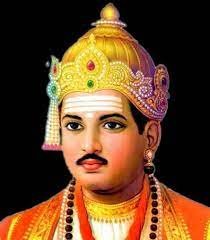Basavanna Information In English , basavanna information in english pdf , basavanna vachana in english information, about basavanna in english , about basaveshwara in english , basavanna vachana in english summary , works of basavanna in english , information about basavanna in english , basavanna details in english
Basavanna Information In English
Table of Contents
Basavanna, also known as Basaveshwara, was a 12th-century poet, philosopher, and social reformer from the Indian state of Karnataka. He is considered the founding saint of the Lingayat sect, a major religious and social movement in Karnataka.
Basavanna Essay In English

Early Life:
Basavanna was born in the town of Bagewadi, in present-day Karnataka, in 1134 CE. He was born into a Brahmin family, and his father’s name was Madarasa. Basavanna received a traditional education and was well-versed in the Vedas and other religious texts.
Social Reforms:
Basavanna challenged the prevailing social order of his time, which was characterized by caste-based discrimination and inequality. He advocated for social equality, rejecting the hierarchical caste system and promoting a society based on principles of justice, dignity, and individual merit.

Vachanas:
Basavanna expressed his teachings and philosophy through a unique literary form called “Vachanas.” Vachanas are short, rhythmic poems composed in the Kannada language. These poems often conveyed profound spiritual and social messages in simple, accessible language.
The Ishta Linga:
Basavanna emphasized the worship of the “Ishta Linga,” a personal symbol of the divine, which he believed was accessible to all individuals regardless of their social background. He rejected the need for elaborate rituals and emphasized the importance of devotion, sincerity, and ethical conduct.
Formation of Anubhava Mantapa:
Basavanna established a forum called the “Anubhava Mantapa” (the “Hall of Spiritual Experience”) as a platform for intellectual and spiritual discussions. The Anubhava Mantapa was open to people from all walks of life and provided a space for individuals to express their thoughts and experiences.
Equality for Women:
Basavanna was a strong advocate for gender equality. He challenged the prevalent practices of child marriage, dowry, and the subjugation of women. He encouraged the education and empowerment of women, and many women actively participated in the activities of the Lingayat movement.

Legacy
Basavanna’s teachings and philosophy had a lasting impact on the society and culture of Karnataka. The Lingayat movement, inspired by his ideas, continued to flourish after his death and evolved into a distinct religious sect. Basavanna’s Vachanas are still widely studied and revered today, serving as a source of inspiration for people seeking spiritual and social enlightenment.
Basavanna’s contributions to social reform, equality, and spirituality have made him an iconic figure in the history of Karnataka and an influential personality in Indian philosophy and literature.
ಇತರೆ ಪ್ರಬಂಧಗಳನ್ನು ಓದಲು ಕ್ಲಿಕ್ ಮಾಡಿ
ಇತರೆ ವಿಷಯಗಳು
ಬಾಬು ಜಗಜೀವನ್ ರಾಮ್ ಅವರ ಬಗ್ಗೆ ಪ್ರಬಂಧ
ಯಾಣ ಫಾಲ್ಸ್ ಬಗ್ಗೆ ಅದ್ಬುತ ಮಾಹಿತಿ

